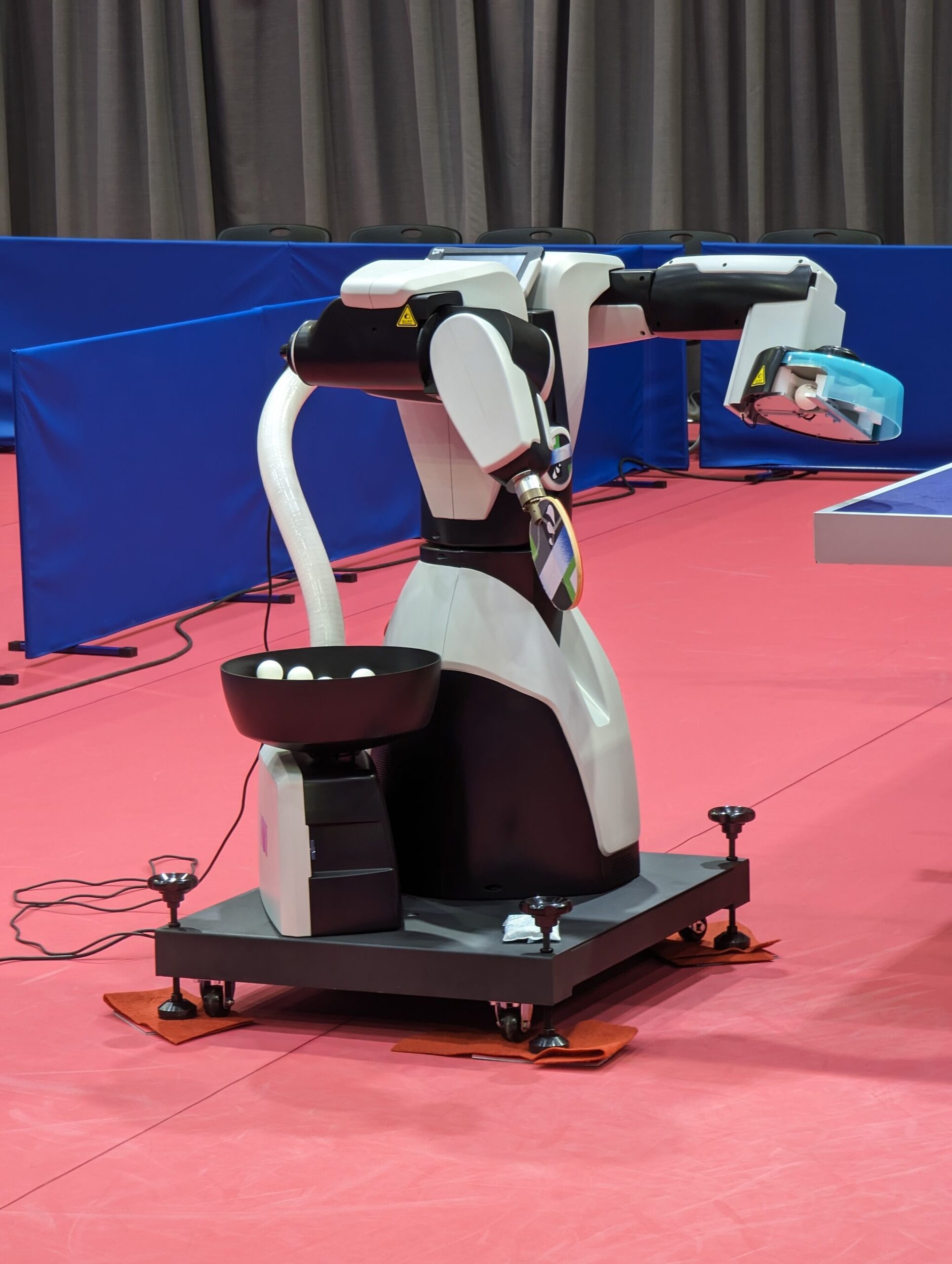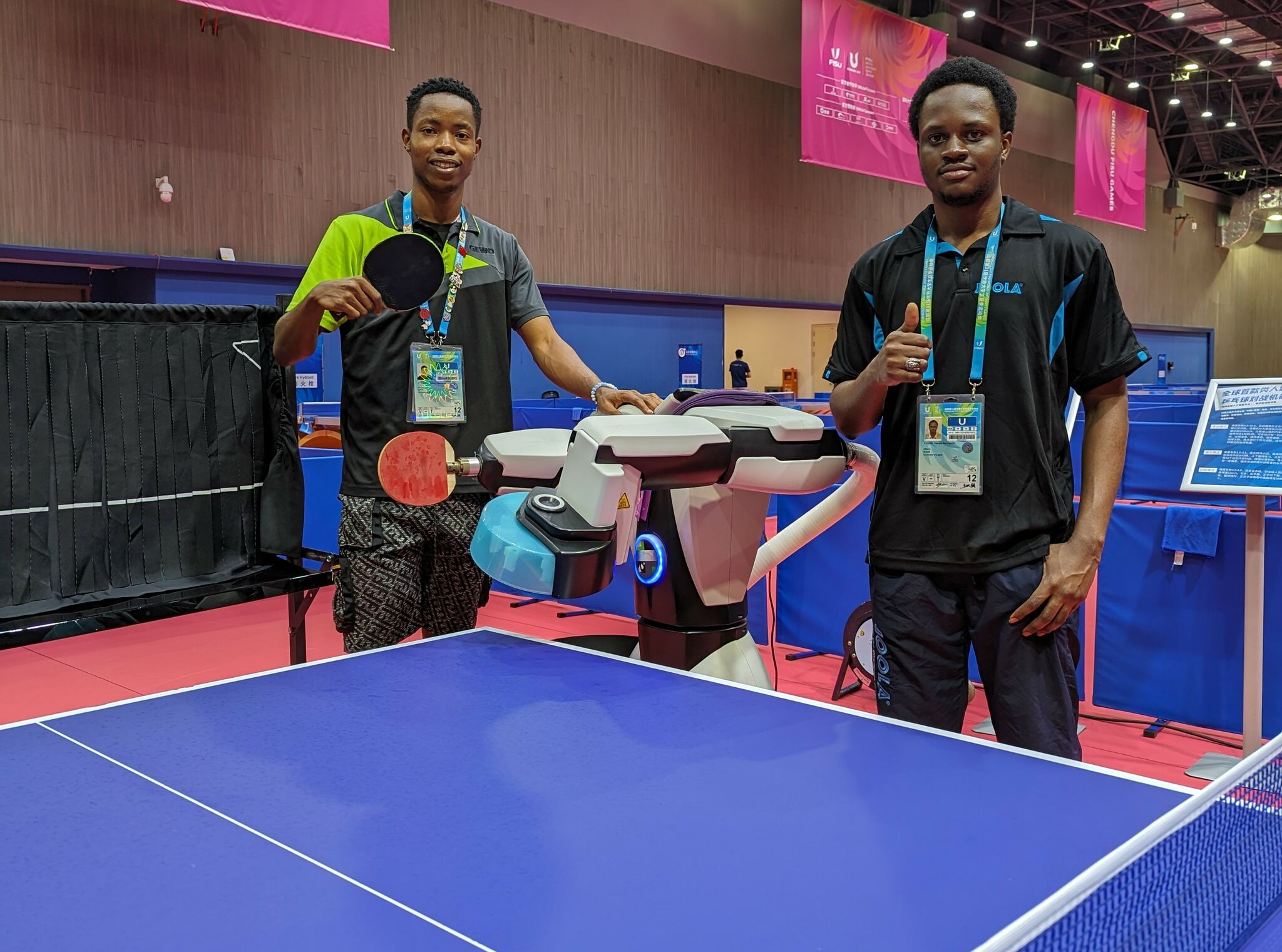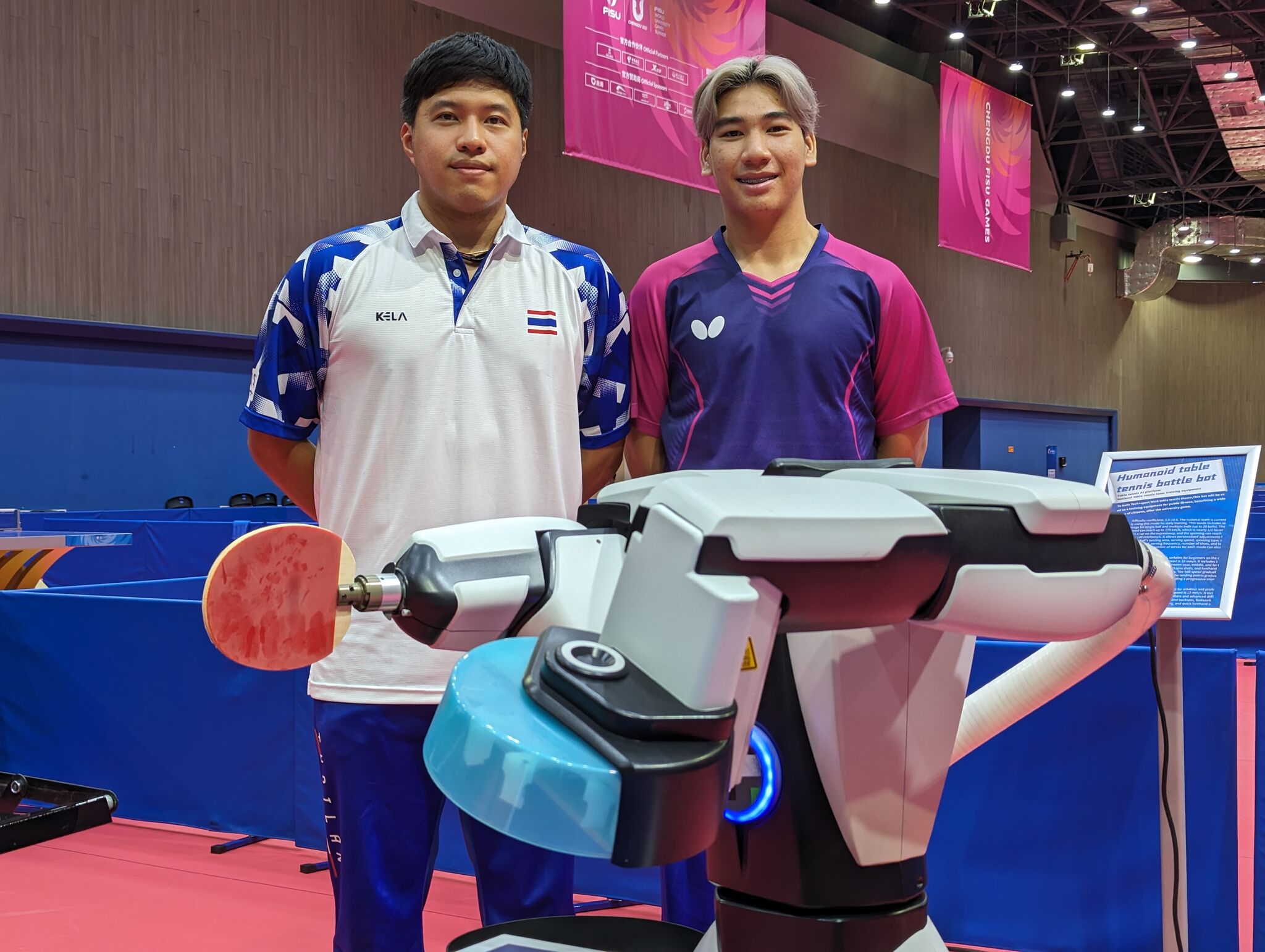In this time following the Chengdu FISU World University Games, we’ll post more stories highlighting unique aspects that helped make for 12 great days in China.
China has always been the international powerhouse when it comes to table tennis. At the Chengdu FISU World University Games, Chinese athletes captured the gold, silver AND bronze medals in the men’s individual competition.
Apart from having top coaches and a long-standing tradition on their side, the FISU Games hosts also benefit from the help of a… robot.
The PongBot – as it is called – is one of its kind. Built by a high-tech company in Shanghai, it can tailor a customized training routine for each athlete and feed balls up to 170 km/h, which is more than three times faster than the fastest serve ever recorded.

PongBotIt also keeps track of where on the table players hit the ball, so it can read into their weaknesses and recommend better practicing routines.
“This machine can go very fast, and it can feed you the ball way faster than any human can,” said Daniel Ikko-Allah Ayuba, from Team Nigeria. “It’s harder to play against this than against a human.”
And it is completely unpredictable, which is great for practice.
“It helps in terms of power, spin and it also improves my stroke,” said Nigerian teammate Prosper Obasuyi.
Obasuyi also explains that the robot is great for accuracy because it can propel balls precisely to the same spot with a 100% success rate.
“You can practice the exact same thing over and over again until you master it,” he said.
Wanwisa Aueawiriyayothin from Thailand agrees.
“The ball comes to me sometimes with spin, sometimes with no spin. Sometimes fast, sometimes not so fast. It’s better than what the people give you,” she said.
Despite the 19-year-old’s statement, her coach is not worried about being replaced.
“The robot cannot tell the mistakes a player is making. He does nothing but feed balls,” said Apithai Bumrungpanictarworn.
 Prosper Obasuyi (L) and Daniel Ayuba (R)
Prosper Obasuyi (L) and Daniel Ayuba (R)
In fact, out of six athletes interviewed, only Aueawiriyayothin believes it can substitute a coach.
“Robots don’t have feelings, coaches do. Coaches will tell you what’s wrong. The robot can’t do that,” said Ayuba.
Bumrungpanictarworn sees the PongBot as an assistant. For him, it can prepare newcomers and up their level before they face elite players, and it enables coaches to step back and observe their pupils.
“By watching them play against the robot, we can see how they move, how they play, how they stroke,” he said. “We can set up the robot to a model that pushes them [the athletes] as we want.”
Even though the technology is not exclusive to China, no other country has it.
The steep price tag of 60,000 RMB ($8,320 US) scares off many potential buyers who do not have that much money to invest in table tennis. Usually, they stick to a simpler robot that only feeds balls on a straight line.
“In Nigeria, we have one without a racket that only feeds balls at the same speed. This is much better,” said Ayuba.
It may not seem like it, but the PongBot still has a lot of room for improvement. For starters, it does not hit the ball back, so it does no good for an athlete who needs to practice their defense.
Yet, everyone wants it, mostly because machines never get tired and work completely on demand.
“Sometimes you want to practice, and you need to wait for someone to come. With this, you just set it up and play on your own, train what you want,” said fellow Nigerian Oyeniyi Kehinde.



